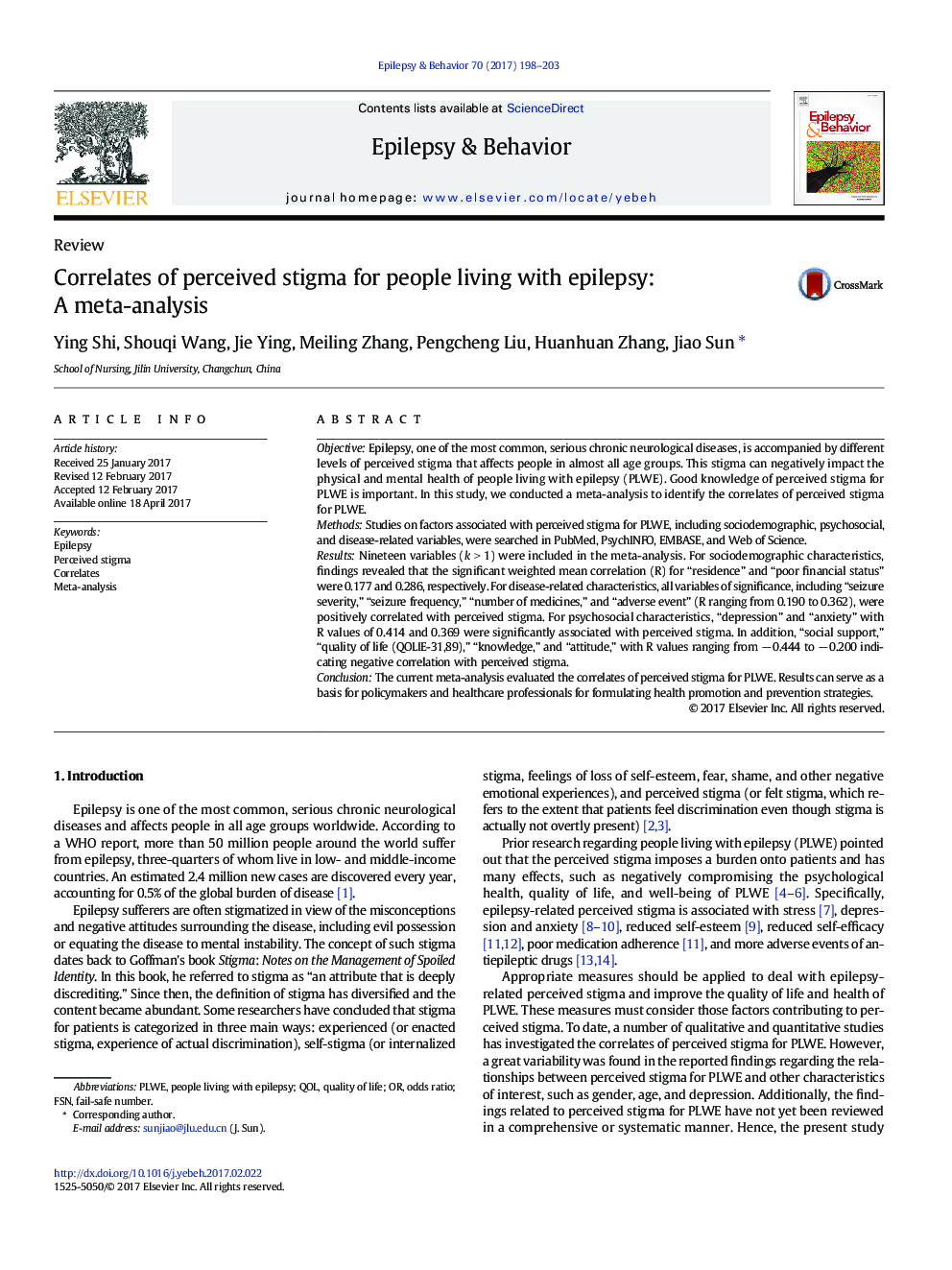| Article ID | Journal | Published Year | Pages | File Type |
|---|---|---|---|---|
| 5628281 | Epilepsy & Behavior | 2017 | 6 Pages |
â¢The first meta-analysis of correlates of perceived stigma for PLWE.â¢11 variables are significantly related with perceived stigma for PLWE.â¢The findings can help to formulate health promotion and prevention strategies.
ObjectiveEpilepsy, one of the most common, serious chronic neurological diseases, is accompanied by different levels of perceived stigma that affects people in almost all age groups. This stigma can negatively impact the physical and mental health of people living with epilepsy (PLWE). Good knowledge of perceived stigma for PLWE is important. In this study, we conducted a meta-analysis to identify the correlates of perceived stigma for PLWE.MethodsStudies on factors associated with perceived stigma for PLWE, including sociodemographic, psychosocial, and disease-related variables, were searched in PubMed, PsychINFO, EMBASE, and Web of Science.ResultsNineteen variables (k > 1) were included in the meta-analysis. For sociodemographic characteristics, findings revealed that the significant weighted mean correlation (R) for “residence” and “poor financial status” were 0.177 and 0.286, respectively. For disease-related characteristics, all variables of significance, including “seizure severity,” “seizure frequency,” “number of medicines,” and “adverse event” (R ranging from 0.190 to 0.362), were positively correlated with perceived stigma. For psychosocial characteristics, “depression” and “anxiety” with R values of 0.414 and 0.369 were significantly associated with perceived stigma. In addition, “social support,” “quality of life (QOLIE-31,89),” “knowledge,” and “attitude,” with R values ranging from â 0.444 to â 0.200 indicating negative correlation with perceived stigma.ConclusionThe current meta-analysis evaluated the correlates of perceived stigma for PLWE. Results can serve as a basis for policymakers and healthcare professionals for formulating health promotion and prevention strategies.
